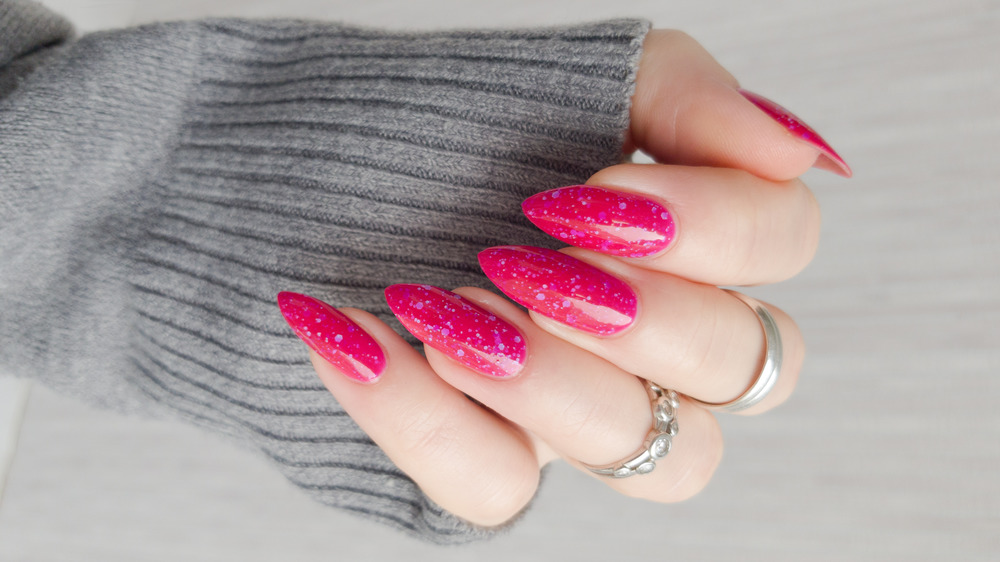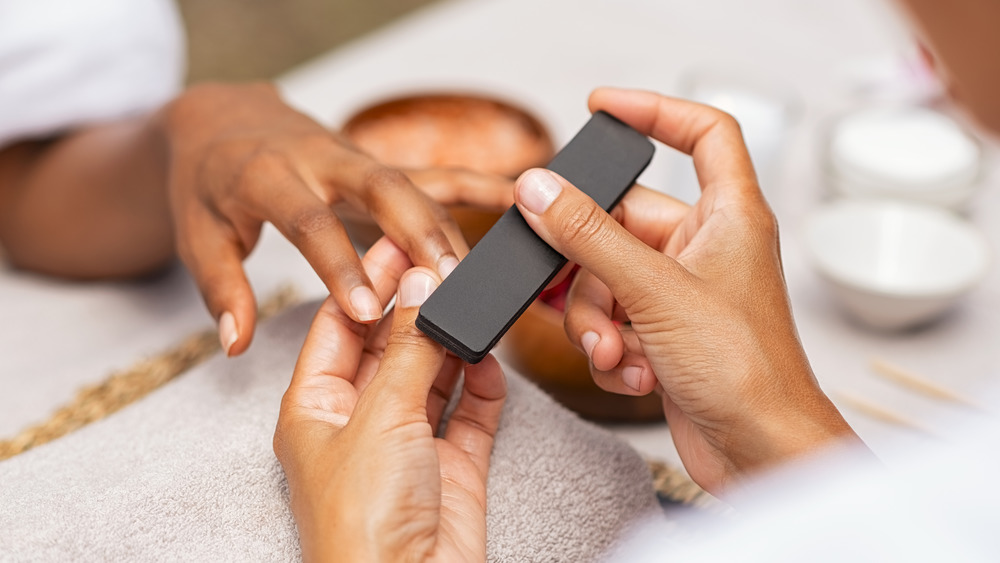Why You Should Think Twice Before Getting Acrylic Nails
Artificial nails can lengthen and enhance the look of your nails, but they don't come without risk. There are several types of artificial nails, with acrylic being a popular choice. In order to get acrylic nails to adhere, the surface of natural nails need to be filed down to a point where they feel rough, which makes them thinner and weaker, according to the American Academy of Dermatology (AAD). Products used to apply acrylic nails also contain chemicals which can irritate the skin around the nails.
What's more, artificial nails can make you more prone to infections. This can happen when the fake nails were applied with unsanitary tools or if they become too long or rigid. This can also occur if an artificial nail is damaged, creating a gap between your natural nail and the fake nail. This tiny space provides a warm, moist environment for an infection to take hold.
Removing acrylic nails requires soaking them in acetone or filing them off. This can leave nails thin and brittle. If you want to keep acrylic nails for more than a few weeks, frequent touch ups are required, which can damage natural nails over time.
How to minimize damage from artificial nails
The AAD recommends choosing soak-off gel nails, which are more flexible and less likely to make nails crack than acrylic nails. However, since gel nails require ultraviolet (UV) light to set, go to a salon that uses LED curing lights, which emit lower levels of UV radiation than a UV curing light. UV light can lead to skin damage, wrinkles, age spots, and in high levels, skin cancer (via WebMD). However, there have been no reported cases of skin cancer linked to UV lamps in nail salons.
Additionally, make sure your nail technician is using properly sterilized tools and a new nail file and has thoroughly washed their hands between clients. It's also a good idea to skip cuticle trimming, as this can lead to nail infections.
Finally, the AAD suggests reserving artificial nails for special occasions. This will give your natural nails the ability to repair themselves from any damage artificial nails may have done. If you suspect you have a nail infection, see a dermatologist right away for a diagnosis and treatment.


